The Seven Churches of Revelation offer a fascinating glimpse into the early Christian experience. Each congregation faced unique challenges, whether persecution, pagan influences, or spiritual apathy. These ancient cities, rich in history and archaeological significance, shed light on the struggles of believers during a critical period in the faith’s development. What messages of encouragement and warning did they receive, and how did these shape the foundation of Christian resilience? Exploring the triumphs and tensions of these communities reveals much about the early church’s journey.
- Key Points
- Smyrna
- Pergamon
- Thyatira
- Sardis
- Philadelphia
- Laodicea
- Ephesus
- FAQ
- How Can I Book This Tour in Advance?
- What Is the Minimum Group Size for This Tour?
- Are Any Meals Included During the Tour?
- Can I Customize the Itinerary to Visit Additional Sites?
- Is There Any Flexibility in the Tour Schedule?
- Sum Up
- More Tours in Cesme
- More Tour Reviews in Cesme
Key Points
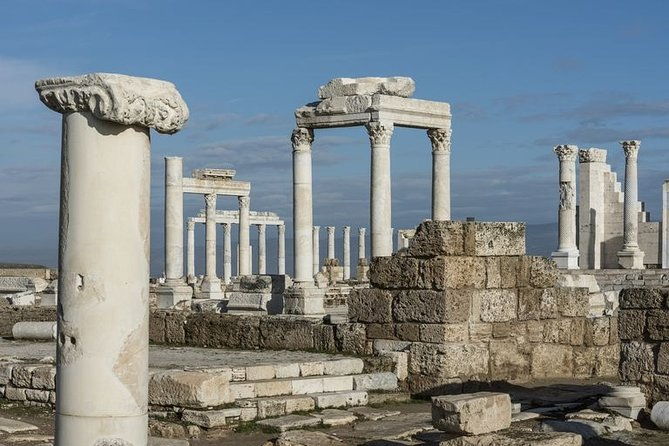
- The Seven Churches of Revelation refer to early Christian communities in Asia Minor, each with distinct historical, cultural, and spiritual challenges.
- Smyrna, Pergamon, Thyatira, Sardis, Philadelphia, and Laodicea were influential centers of Hellenistic and Roman culture, with archaeological remains reflecting their vibrant past.
- The churches faced various issues, including pagan influences, material wealth, spiritual apathy, and persecution, which are addressed in the Book of Revelation.
- The messages to the Seven Churches provide insights into the struggles and triumphs of the early Christian community, offering lessons on overcoming temptation and maintaining faith.
- The Seven Churches represent the universal experiences of the Church, from its inception to modern times, serving as a testament to the enduring nature of Christianity.
Smyrna
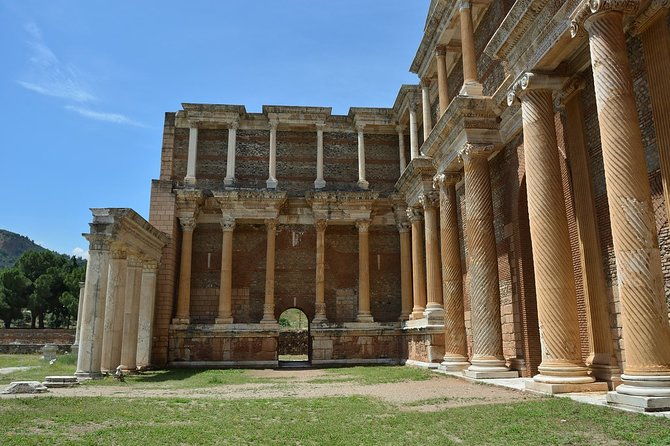
The tour begins in Smyrna, one of the seven churches mentioned in the Book of Revelation. Participants will explore the ancient ruins and learn about the city’s pivotal role in early Christianity.
They’ll visit the site of the Roman agora and the Synagogue Street, where the Jewish community once thrived. The tour also includes the Church of Polycarp, named after the city’s bishop who was martyred here.
Travelers will gain insights into Smyrna’s tumultuous history and the challenges faced by the early Christian community, setting the stage for the journey ahead.
Looking for more options in Cesme? We've reviewed plenty of other experiences.
Pergamon
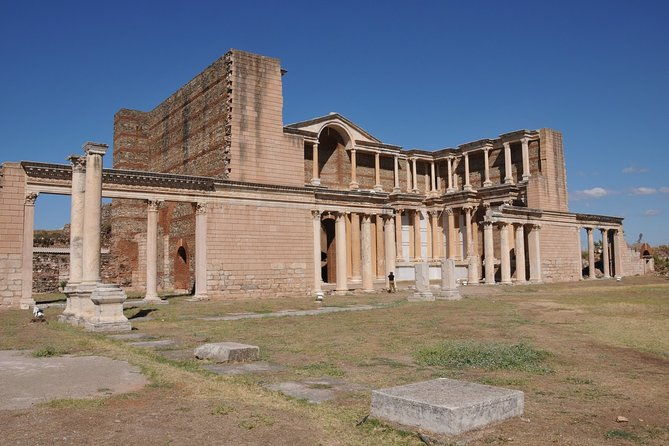
Next, the tour ventures to the ancient city of Pergamon, once a prominent center of Hellenistic culture and one of the Seven Churches mentioned in the Book of Revelation.
Visitors explore the Acropolis, home to the impressive Pergamon Altar, a grand structure featuring intricate mythological carvings.
The tour also visits the Asclepion, an ancient healing center dedicated to the Greek god of medicine, Asclepius. Here, guests learn about the region’s medical practices and the impressive library that once rivaled Alexandria’s.
The tour then moves on to the final churches, completing the journey through this biblically significant landscape.
Thyatira
From Pergamon, the tour now heads to the ancient city of Thyatira, another of the Seven Churches mentioned in the Book of Revelation. Once a thriving commercial center, Thyatira was known for its trade guilds and purple dye industry. The city’s church faced challenges from pagan influences, prompting a stern warning from Jesus in the Revelation.
| Past | Present | Future |
| — | — | — |
| Prominent trade guilds | Secularism and compromise | Faithful witness to Christ |
| Purple dye industry | Spiritual apathy | Renewed commitment |
| Prosperous commerce | Moral laxity | Overcoming temptation |
The tour explores the archaeological remains, considering the church’s history and the Lord’s message to it.
Sardis
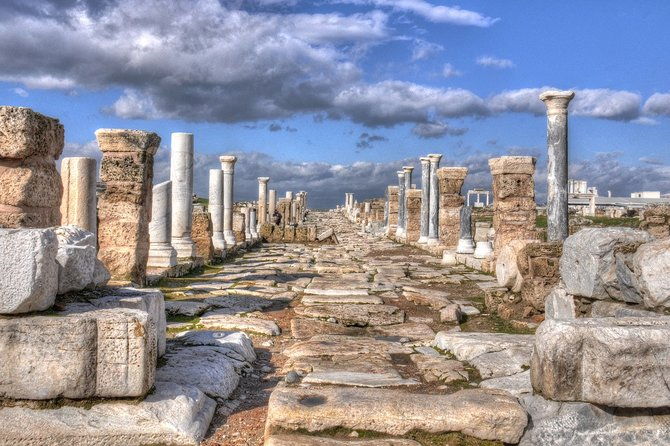
Departing Thyatira, the tour now heads to the ancient city of Sardis, another of the Seven Churches mentioned in the Book of Revelation.
Once a powerful and prosperous city, Sardis was home to the ruins of a magnificent temple and an impressive ancient synagogue.
Visitors can explore:
-
The remains of the Sardis Synagogue, one of the largest ancient synagogues ever discovered
-
The impressive Temple of Artemis, a massive structure that was one of the largest temples in Asia Minor
-
The Necropolis, an expansive ancient cemetery with numerous tombs and monuments
-
The ancient Sardis Gymnasium and Bath Complex, impressive remnants of the city’s former grandeur.
Philadelphia
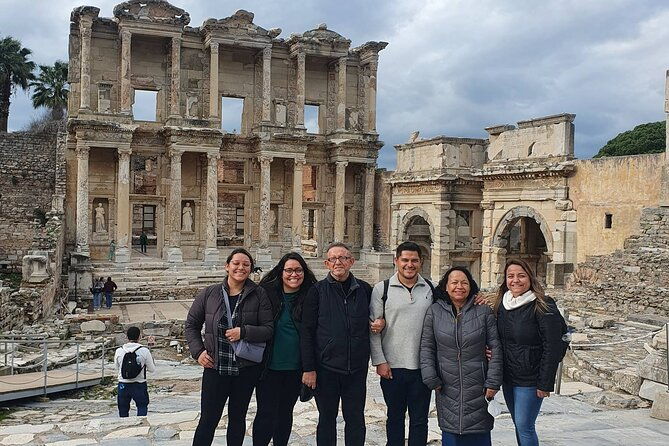
The tour now explores the ancient city of Philadelphia, another of the seven churches mentioned in the Book of Revelation.
Located in western Turkey, Philadelphia was known for its resilience, even during periods of hardship. The city’s faithful church endured persecution, yet remained steadfast in its devotion.
Visitors can view the ruins of the ancient church, as well as the remains of the city’s Byzantine-era walls and gates.
Philadelphia’s symbolic meaning, "brotherly love," is reflected in its history as a center of early Christianity, where the congregation upheld its beliefs despite facing adversity.
Laodicea
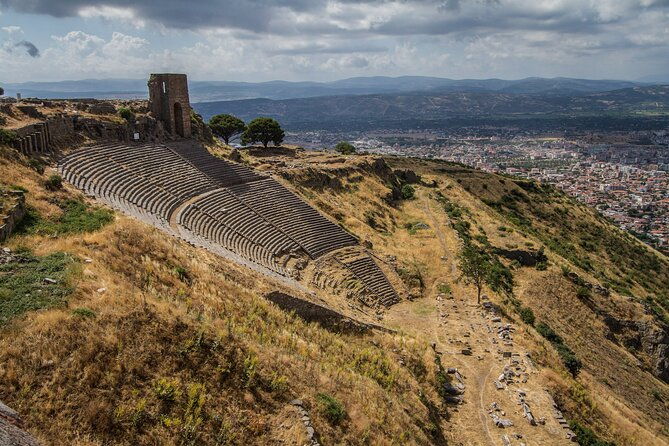
Moving on from the resilient church in Philadelphia, the tour next explores the ancient city of Laodicea. Known for its material wealth and lukewarm spiritual state, Laodicea was condemned by Jesus for its complacency.
Visitors will discover:
-
The extensive ruins of the ancient city, including the theater, stadium, and church buildings
-
The site of the former Laodicean church, where Jesus’ letter is believed to have been read
-
The ancient aqueduct system that supplied water to the city, symbolic of the church’s lukewarm faith
-
The panoramic views of the valley from the acropolis, providing context for the city’s prosperity and spiritual state.
Ephesus
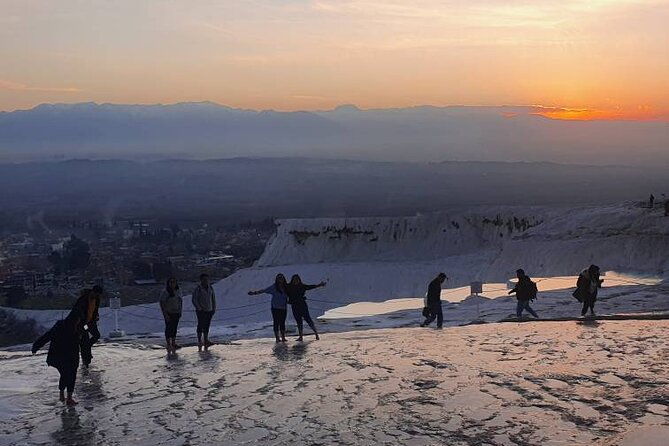
Ephesus captivates visitors with its well-preserved ruins and rich history intertwined with the early Christian church. The ancient city was once a bustling commercial hub and home to one of the Seven Churches of Revelation. Travelers can explore the iconic Library of Celsus, the grand amphitheater, and the Basilica of St. John, all while seeing the city’s pivotal role in the spread of Christianity.
| Site | Significance |
| — | — |
| Library of Celsus | Iconic library and cultural center |
| Grand Amphitheater | Capacity for 25,000 spectators |
| Basilica of St. John | Built over the apostle’s tomb |
| Temple of Artemis | One of the Seven Wonders of the Ancient World |
| Ephesus Museum | Exhibits artifacts from the ancient city |
FAQ
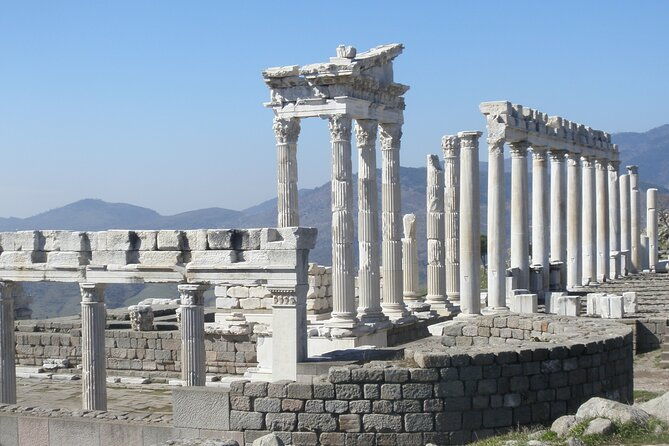
How Can I Book This Tour in Advance?
You can book this tour in advance by contacting the Gezenthi Travel Agency. The tour includes pickup, accommodation, and admission fees, and has a flexible cancellation policy up to 24 hours prior to the experience.
What Is the Minimum Group Size for This Tour?
The minimum group size for this tour is 1 person. The tour is limited to a maximum of 15 participants, so the minimum group size is just one traveler.
Are Any Meals Included During the Tour?
The tour includes drinks throughout the trip, but does not explicitly mention any meals being provided. The tour focuses on the biblical sites and transportation, with accommodation in 4-star hotels.
Can I Customize the Itinerary to Visit Additional Sites?
The tour includes all meals, but participants can’t customize the itinerary to visit additional sites. The tour focuses on the key Seven Churches of Revelation sites and maintains a fixed schedule to ensure a comprehensive experience for all travelers.
Is There Any Flexibility in the Tour Schedule?
The tour has some flexibility, as it’s a small-group experience. Travelers can discuss customizing the itinerary with the tour guide to visit additional sites within the same region, though this may require extra fees or adjustments to the schedule.
Sum Up
The Seven Churches of Revelation provide valuable insights into the challenges and triumphs of early Christianity. These ancient communities faced diverse obstacles, from persecution to spiritual indifference, yet they also received messages of encouragement and warning that shaped the foundation of Christian faith. Their legacy continues to inspire believers today, reminding them of the resilience and steadfastness required to navigate the complexities of the Christian journey.
